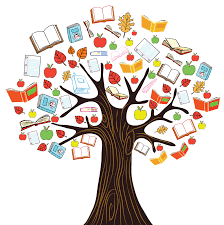Curriculum Overview
Aims
At Chesterton Primary School, we provide all children with a broad and balanced curriculum which covers all areas of development. With knowledge-based learning at the core, our curriculum ensures children know more, remember more, understand it and apply it. The curriculum is sequenced in an age-appropriate way and uses crucial knowledge to develop understanding and confidence to maximise learning opportunities to ensure children are successful.
Intent
Our curriculum is planned and sequenced in a way which considers children’s starting points in early years to their journey into secondary education and what knowledge and skills they need and how they will make this progress. Based on the National Curriculum, we promote subject-specific learning to ensure children have a clear understanding of subjects taught and their purposefulness. Adaptations are made for children with different needs to ensure equal opportunities and progression for all. Sequencing is key to ensuring learning is developed in ‘building-blocks’ and that learning is revisited so that children ‘remember more’ and embed learning to their long-term memory. Recapping of previous learning is carefully planned into the curriculum within a school term / year and throughout and across key stages, which develops a deeper understanding and appreciation of knowledge and skills as ideas are relevant to other learning and generates successful application of knowledge and skills.
Implementation
Our knowledge-based curriculum utilises crucial knowledge to underpin the fundamentals of knowledge and skills needed to make progress. This is presented to pupils throughout the day as part of teaching, recap and home learning in person and electronically. The careful sequencing and recapping of learning is planned in a way that develops ‘remembering more’ (children transfer knowledge to their long-term memory) and as a result are able to ‘apply it’. Our implementation of the curriculum is ambitious and incorporates different environments such as the classroom, external visits, outdoor learning, online learning, electronic class shared programmes plus adapted learning environments and support to ensure equality for all. A multi-faceted approach to assessments including planned recapping of learning highlights misconceptions and gaps in learning which are identified and addressed before learning is embedded, meaning children ‘understand it’. Subject leadership is shared collectively in targeted groups. This allows teachers to collaborate in more subject areas which develops stronger ownership, passion and understanding for their curriculum and generates enhanced sharing and development of expert knowledge and skills in more detail. Learning together, Growing together, Succeeding together.
Impact
The impact of our curriculum is measured through continual assessments of pupil’s retention of knowledge and their understanding and application across all lessons using a range of assessment strategies. Having subject leaders who work collaboratively in their teams means more experts are focusing on measuring the impact of learning in a targeted subject-specific way. The sequencing of learning is constantly moderated and reviewed at all levels (class teaching teams, subject leaders and senior leadership). Regular key-stage and whole team reflections and moderation are fundamental to reviewing the impact of our curriculum alongside pupil voice which is a strongly powerful indicator of impact. Our school ambassadors also regularly review learning. Continual reviews across all subject areas and year groups are an integral part of maximising the effectiveness of our curriculum.


